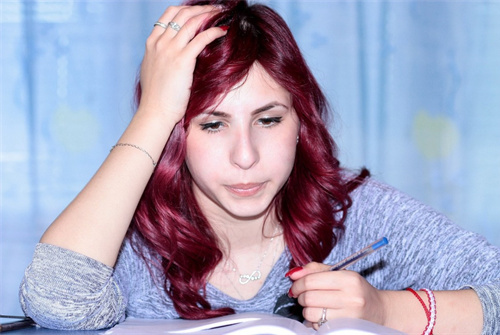旺加里·马塔伊获奖感言
Wangari Muta Maathai:Your MajestiesYour Royal HighnessesHonourable Members of the Norwegian Nobel CommitteeExcellenciesLadies and GentlemenI stand before you and the world humbled by this recognition and uplifted by the honour of being the 2004 Nobel Peace Laureate. As the first African woman to receive this prize, I accept it on behalf of the people of Kenya and Africa, and indeed the world. I am especially mindful of women and the girl child. I hope it will encourage them to raise their voices and take more space for leadership. I know the honour also gives a deep sense of pride to our men, both old and young. As a mother, I appreciate the inspiration this brings to the youth and urge them to use it to pursue their dreams. Although this prize comes to me, it acknowledges the work of countless individuals and groups across the globe. They work quietly and often without recognition to protect the environment, promote democracy, defend human rights and ensure equality between women and men. By so doing, they plant seeds of peace. I know they, too, are proud today. To all who feel represented by this prize I say use it to advance your mission and meet the high expectations the world will place on us. This honour is also for my family, friends, partners and supporters throughout the world. All of them helped shape the vision and sustain our work, which was often accomplished under hostile conditions. I am also grateful to the people of Kenya-who remained stubbornly hopeful that democracy could be realized and their environment managed sustainably. Because of this support, I am here today to accept this great honour. I am immensely privileged to join my fellow African Peace laureates, Presidents Nelson Mandela and F.W. de Klerk, Archbishop Desmond Tutu, the late Chief Albert Luthuli, the late Anwar el-Sadat and the UN Secretary General, Kofi Annan. I know that African people everywhere are encouraged by this news. My fellow Africans, as we embrace this recognition, let us use it to intensify our commitment to our people, to reduce conflicts and poverty and thereby improve their quality of life. Let us embrace democratic governance, protect human rights and protect our environment. I am confident that we shall rise to the occasion. I have always believed that solutions to most of our problems must come from us. In this year"s prize, the Norwegian Nobel Committee has placed the critical issue of environment and its linkage to democracy and peace before the world. For their visionary action, I am profoundly grateful. Recognizing that sustainable development, democracy and peace are indivisible is an idea whose time has come. Our work over the past 30 years has always appreciated and engaged these linkages. My inspiration partly comes from my childhood experiences and observations of Nature in rural Kenya. It has been influenced and nurtured by the formal education I was privileged to receive in Kenya, the United States and Germany. As I was growing up, I witnessed forests being cleared and replaced by commercial plantations, which destroyed local biodiversity and the capacity of the forests to conserve water. Excellencies, ladies and gentlemen, In 1977, when we started the Green Belt Movement, I was partly responding to needs identified by rural women, namely lack of firewood, clean drinking water, balanced diets, shelter and income. Throughout Africa, women are the primary caretakers, holding significant responsibility for tilling the land and feeding their families. As a result, they are often the first to become aware of environmental damage as resources become scarce and incapable of sustaining their families. The women we worked with recounted that unlike in the past, they were unable to meet their basic needs. This was due to the degradation of their immediate environment as well as the introduction of commercial farming, which replaced the growing of household food crops. But international trade controlled the price of the exports from these small-scale farmers and a reasonable and just income could not be guaranteed. I came to understand that when the environment is destroyed, plundered or mismanaged, we undermine our quality of life and that of future generations. Tree planting became a natural choice to address some of the initial basic needs identified by women. Also, tree planting is simple, attainable and guarantees quick, successful results within a reasonable amount time. This sustains interest and commitment. So, together, we have planted over 30 million trees that provide fuel, food, shelter, and income to support their children"s education and household needs. The activity also creates employment and improves soils and watersheds. Through their involvement, women gain some degree of power over their lives, especially their social and economic position and relevance in the family. This work continues. Initially, the work was difficult because historically our people have been persuaded to believe that because they are poor, they lack not only capital, but also knowledge and skills to address their challenges. Instead they are conditioned to believe that solutions to their problems must come from "outside". Further, women did not realize that meeting their needs depended on their environment being healthy and well managed. They were also unaware that a degraded environment leads to a scramble for scarce resources and may culminate in poverty and even conflict. They were also unaware of the injustices of international economic arrangements. In order to assist communities to understand these linkages, we developed a citizen education program, during which people identify their problems, the causes and possible solutions. They then make connections between their own personal actions and the problems they witness in the environment and in society. They learn that our world is confronted with a litany of woes: corruption, violence against women and children, disruption and breakdown of families, and disintegration of cultures and communities. They also identify the abuse of drugs and chemical substances, especially among young people. There are also devastating diseases that are defying cures or occurring in epidemic proportions. Of particular concern are HIV\\\/AIDS, malaria and diseases associated with malnutrition. On the environment front, they are exposed to many human activities that are devastating to the environment and societies. These include widespread destruction of ecosystems, especially through deforestation, climatic instability, and contamination in the soils and waters that all contribute to excruciating poverty. In the process, the participants discover that they must be part of the solutions. They realize their hidden potential and are empowered to overcome inertia and take action. They come to recognize that they are the primary custodians and beneficiaries of the environment that sustains them. Entire communities also come to understand that while it is necessary to hold their governments accountable, it is equally important that in their own relationships with each other, they exemplify the leadership values they wish to see in their own leaders, namely justice, integrity and trust. Although initially the Green Belt Movement"s tree planting activities did not address issues of democracy and peace, it soon became clear that responsible governance of the environment was impossible without democratic space. Therefore, the tree became a symbol for the democratic struggle in Kenya. Citizens were mobilised to challenge widespread abuses of power, corruption and environmental mismanagement. In Nairobi"s Uhuru Park, at Freedom Corner, and in many parts of the country, trees of peace were planted to demand the release of prisoners of conscience and a peaceful transition to democracy. Through the Green Belt Movement, thousands of ordinary citizens were mobilized and empowered to take action and effect change. They learned to overcome fear and a sense of helplessness and moved to defend democratic rights. In time, the tree also became a symbol for peace and conflict resolution, especially during ethnic conflicts in Kenya when the Green Belt Movement used peace trees to reconcile disputing communities. During the ongoing re-writing of the Kenyan constitution, similar trees of peace were planted in many parts of the country to promote a culture of peace. Using trees as a symbol of peace is in keeping with a widespread African tradition. For example, the elders of the Kikuyu carried a staff from the thigi tree that, when placed between two disputing sides, caused them to stop fighting and seek reconciliation. Many communities in Africa have these traditions. Such practises are part of an extensive cultural heritage, which contributes both to the conservation of habitats and to cultures of peace. With the destruction of these cultures and the introduction of new values, local biodiversity is no longer valued or protected and as a result, it is quickly degraded and disappears. For this reason, The Green Belt Movement explores the concept of cultural biodiversity, especially with respect to indigenous seeds and medicinal plants. As we progressively understood the causes of environmental degradation, we saw the need for good governance. Indeed, the state of any county"s environment is a reflection of the kind of governance in place, and without good governance there can be no peace. Many countries, which have poor governance systems, are also likely to have conflicts and poor laws protecting the environment. In 2002, the courage, resilience, patience and commitment of members of the Green Belt Movement, other civil society organizations, and the Kenyan public culminated in the peaceful transition to a democratic government and laid the foundation for a more stable society. Excellencies, friends, ladies and gentlemen, It is 30 years since we started this work. Activities that devastate the environment and societies continue unabated. Today we are faced with a challenge that calls for a shift in our thinking, so that humanity stops threatening its life-support system. We are called to assist the Earth to heal her wounds and in the process heal our own - indeed, to embrace the whole creation in all its diversity, beauty and wonder. This will happen if we see the need to revive our sense of belonging to a larger family of life, with which we have shared our evolutionary process. In the course of history, there comes a time when humanity is called to shift to a new level of consciousness, to reach a higher moral ground. A time when we have to shed our fear and give hope to each other. That time is now. The Norwegian Nobel Committee has challenged the world to broaden the understanding of peace: there can be no peace without equitable development; and there can be no development without sustainable management of the environment in a democratic and peaceful space. This shift is an idea whose time has come. I call on leaders, especially from Africa, to expand democratic space and build fair and just societies that allow the creativity and energy of their citizens to flourish. Those of us who have been privileged to receive education, skills, and experiences and even power must be role models for the next generation of leadership. In this regard, I would also like to appeal for the freedom of my fellow laureate Aung San Suu Kyi so that she can continue her work for peace and democracy for the people of Burma and the world at large. Culture plays a central role in the political, economic and social life of communities. Indeed, culture may be the missing link in the development of Africa. Culture is dynamic and evolves over time, consciously discarding retrogressive traditions, like female genital mutilation (FGM), and embracing aspects that are good and useful. Africans, especially, should re-discover positive aspects of their culture. In accepting them, they would give themselves a sense of belonging, identity and self-confidence. Ladies and Gentlemen, There is also need to galvanize civil society and grassroots movements to catalyse change. I call upon governments to recognize the role of these social movements in building a critical mass of responsible citizens, who help maintain checks and balances in society. On their part, civil society should embrace not only their rights but also their responsibilities. Further, industry and global institutions must appreciate that ensuring economic justice, equity and ecological integrity are of greater value than profits at any cost. The extreme global inequities and prevailing consumption patterns continue at the expense of the environment and peaceful co-existence. The choice is ours. I would like to call on young people to commit themselves to activities that contribute toward achieving their long-term dreams. They have the energy and creativity to shape a sustainable future. To the young people I say, you are a gift to your communities and indeed the world. You are our hope and our future. The holistic approach to development, as exemplified by the Green Belt Movement, could be embraced and replicated in more parts of Africa and beyond. It is for this reason that I have established the Wangari Maathai Foundation to ensure the continuation and expansion of these activities. Although a lot has been achieved, much remains to be done. Excellencies, ladies and gentlemen, As I conclude I reflect on my childhood experience when I would visit a stream next to our home to fetch water for my mother. I would drink water straight from the stream. Playing among the arrowroot leaves I tried in vain to pick up the strands of frogs" eggs, believing they were beads. But every time I put my little fingers under them they would break. Later, I saw thousands of tadpoles: black, energetic and wriggling through the clear water against the background of the brown earth. This is the world I inherited from my parents. Today, over 50 years later, the stream has dried up, women walk long distances for water, which is not always clean, and children will never know what they have lost. The challenge is to restore the home of the tadpoles and give back to our children a world of beauty and wonder. Thank you very much.
The.poor.are.now.living.in.the.shelter在主语中,那个是主语
①The poor:‘the加形容词表示一类人,做名词用,这里做主语翻译成穷人;②are living是be动词加表语living,表语是表示主语的动作或状态;③now是时间状语翻译成现在,作副词用;④in the shelter是地点状语,一般放在句末。
满意望采纳^ω^
诺贝尔和平奖获得者的事迹
2004年度诺贝尔和平奖获得者马塔伊的主要事迹 64岁的肯尼亚环境保护人士她所发起的“绿色带运动”在非洲各地载下了3千万颗树。
出生于1940年1971年成为内罗毕大学的首位生物学女教授,后来成为生物学院的院长。
这位著名的生物学学者1978年获得了德国学术交流奖学金,是获得这一奖学金的首位东非国家的女性。
她后来获得了生物学博士学位。
马塔伊的个人简介
常言说:“书山有路勤为径,学海无涯苦做舟”。
但他们,饱读诗书,笔耕不辍,把写出一篇篇美文,做为自己向往的快乐;但他们,勤于思索,咬定青山,把攻克一道道难题,当成自己追求的幸福。
谁还会说,无边的学海里充满着艰辛
他们快乐在为理想而拼搏的过程中,他们幸福在为未来而跋涉的努力里。
他们凝神贯注于每一节课堂,朗朗的读书声,传递着他们感恩的情怀;他们苦思冥想于每一道难题,会意的微笑里,折射着他们收获的欣慰。
他们是祖国的栋梁,华美的希望。
现在,让我们把这份殊荣颁发给他们:愿今日的成绩灿烂在未来,愿今天的祝福定格在永远。
积土成山,风雨兴焉;积水成渊,蛟龙生焉。
他们积累着点点滴滴的收获,堆积成自信的高峰;他们浓缩着星星点点的能量,汇聚成开怀的笑容。
当华罗庚摘取数学桂冠的时候,谁会想他幼时木讷愚顿
当爱迪生点亮世界黑暗的时候,谁会说他曾经知识贫穷
执着,能使巨大的冰山化为大海;自信,能让坚硬的岩石变成浮雕。
他们是真心英雄,从不言败;他们是天之骄子,永不服输。
现在,将这份鼓励颁发给他们:愿今日的努力见证永恒,愿今天的信任锁住明天一次失败,不代表永远的失败;同样,一次成功,更不代表永远的成功。
我一直相信,我只要一直保持着这样的心态,我一定能创出自己的一番天地
他们是团结友爱、和谐向上的集体,他们是勤奋进取不甘落后的集体,他们是勇于开拓、大胆创新的集体;勤能补拙的良训在这里得到验证,铁杵磨针的神话在这里得以显现。
是他们让我们看到了集体的力量是无穷的,是他们让我们感受到了团队的强大凝聚力
祝贺他们
积土成山,风雨兴焉;积水成渊,蛟龙生焉。
站在我们面前的是获本年度先进个人的代表,是我校n多名同学中的优秀代表,他们积累点点滴滴的收获,堆积成自强不息的高峰,他们汇聚星星点点的能量,弘扬着砺器悟道的精神。
现在,将这份鼓励颁发给他们:愿昨日的努力见证进取,愿今日的成绩奠基未来
阳光的博大在于它的普照,他不会只笼罩高山、平原,即便是沟壑、丘陵它也努力照耀。
她,就像太阳一般,关注各方,全面发展;不只求知识,也磨练意志;不知养性情,也锤炼体魄;不只能自强,也能与人共勉。
一脸阳光,绽放的是对同学的友爱、对老师的尊敬;一往无前,凝聚的是对目标的执着、对自我的要求。
她,是好学生、好班长、好榜样;像阳光普照,成就自己,感染集体,感动他人。
亲爱的老师:你的爱心是一股涓涓的暖流 从你的表情、眼神中流淌而出 静静地滋润 青春心灵温柔花朵的雨露; 你的严厉是一把锋利的玉刀 从你的神态、言辞中脱鞘而出 精准地清除 一块块玉石粗胚中的杂素; 你的敬业是一根耸立的旗杆 从你的投入、细心中冲决而出 无言地见证 灵魂工程师的赞誉在风中飘舞就这么多了
选择对你有用的






